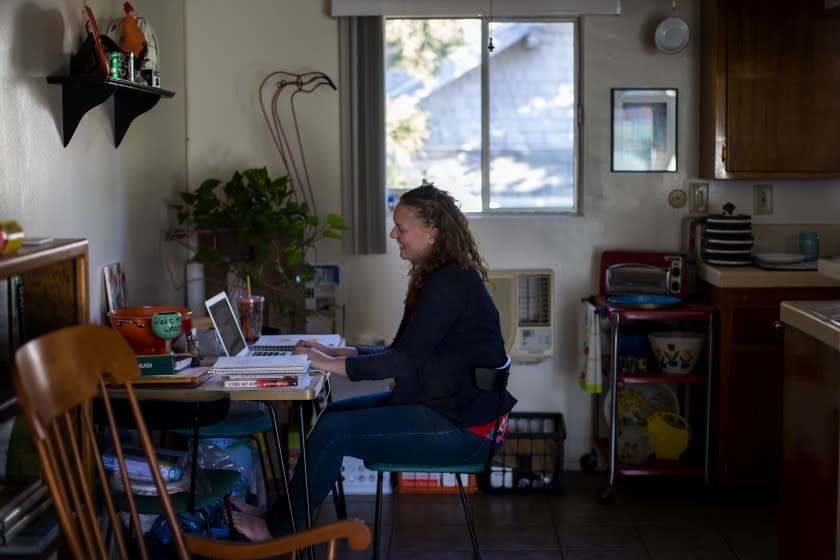Editorial: This is one time standardized tests could be good for everyone

Last year, then-Education Secretary Betsy DeVos made one of the few good moves of her tenure by waiving the annual standardized tests given to elementary and secondary school students under the federal Every Student Succeeds Act. Schools were in emergency mode as they closed campuses in March, many students were without the tools for remote learning, let alone remote testing, and to put it simply, the academic year was a hot mess.
Although the current school year has been better, the repeated refrain nationwide has been that student learning has been disrupted and uneven, a cohort of students ever further behind. There has even been talk of holding everyone back a grade.
Time to stop talking and see where we are — not to judge the performance of schools, teachers or students, but to gather crucial information about what has happened to learning during a still-chaotic year. And wisely, that's what the Biden administration plans to do. The Department of Education announced Monday that the tests will go forward again this year, though the results won't be held against schools whose performance falls short.
The annual standardized tests will provide badly needed data to determine whether the level of learning is as grim as expected, who is faring worst and by how much. It will set a much-needed foundation for deciding who needs intensive summer educational programs and other interventions to ensure that this generation of students doesn't become lost.
And it's reasonable to resume the tests now. Even with most campuses closed, schools have had the time, funding and opportunity to pull their acts together, at least to some extent.
No one should be afraid of more and better information. Yet California schools chief Tony Thurmond wants to delay testing until summer or even fall, saying that “we must resist the urge to rush into stressful, high-stakes testing, when in fact our students will be in a better position to learn if we first prioritize positive connections, relationships, and their mental health and well-being.”
The standardized tests are an imperfect tool for measurement, especially when given remotely. But during a year in which normal education rules have been suspended and administrators have reportedly pressed teachers to pass students who have done failing-level work, these tests are the only objective measure available for assessing what’s happened over this school year.
There’s no reason they have to be stressful if Thurmond, school districts and teachers present them to students in the right way: Just do your best. You won’t be judged on how you do, and neither will your teacher or your school. But we will find out just how tough a year this one has been.
This story originally appeared in Los Angeles Times.

